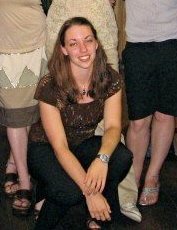Life is changing. Knowledge is changing. Learning is changing. Everything is fast paced. So today's learners of all ages have had to change too.
Today's learner is like a solitary musician.
And you're probably asking yourself, "Where did she come up with that one?"
A musician starts not knowing how to play, or even hold, his or her instrument properly. However with time, plays a scale, then some exercises, eventually some Tellemann perhaps. Eventually, with diligence that same music student becomes proficient enough to play complex and difficult pieces with ease ("Tarantella" anyone?). However, no matter how good that musician is, he or she is playing alone.
When put into the musical network or ecology, first let's say a quartet. Well, now there's opportunity for melody and harmony, point and counterpoint, call and response.
What if the group is larger? An orchestra maybe? Now you can have many voices/parts playing, swooping, flying, far beyond anything the one musician could have done alone, creating new worlds for the senses. Have you ever heard Holst's "Planets"? Yet, each musician is playing his or her part, using their own knowledge and skill, their own specialized expertise on their instrument to contribute to the greater whole. "No one is capable of possessing every form of knowledge or every form of understanding in that field" (Siemens, "Connectivism", slide 12). Musician A may be a virtuoso when it comes to her trombone, but she may not have a clue how to get the proper sound from Musician B's flute. They rely on each other to contribute to the beauty of the whole.
That is today's learner. There is increased call for specialization; it isn't good enough to just be a jack-of-all-trades anymore. However, none of us can "know" everything. So we network, we learn not how to do things, but where to find them. We rely on each other and the resources we all add to the greater community to find what we're looking for. For example, I don't remember much about chemistry, but I know who to call and ask. I don't remember most of the dates of the battles of the Civil War, but I know my brother has some great books, or how to Google the information and measure the sites for reliability. I don't have to know things the same way my grandparents did. My paternal grandmother can still recite all of the American presidents in chronological order - I don't know if I can even name the majority of them. However, I can quickly and easily find that information.
Times have changed. So has how we learn.
Subscribe to:
Post Comments (Atom)

3 comments:
Lynne,
What a great analogy and so well explained. I hope that in this course we can all produce some great music!
Dr. Burgos
Lynne,
Of all the things of which I know nothing about, I know the least about music. Even so I fully understood your analogy, which shows that you did an extremely good job of explaining it. I think your most important point is that of specialization. While we want strive for well rounded students, it is a societal fact that division of labor produces better products in greater quantities. As in instructors it is important that we foster the individual strengths that we see in learns, both for their own benefit, and for the benefit of the group.
Lynne,
Your analogy of today’s learner really hit home for me. Where I work, we always say that each of us is one part of the orchestra. Alone, we can make music, but together we can make absolutely beautiful music. Each of us has our individual talents, but working together in community we are able to realize and accomplish much more. Today’s learner is bombarded with so much more information than in the past. It is overwhelming, but within the orchestra/team we each add what we know and learn from one another. I believe it is difficult for students of today because so many of them are much more technologically “in the know” than their teachers are. Some older teachers are offended that their students know more than they know. I would like those teachers to realize we are all in the same boat and learning from each other is the key to success for all of us. Knowledge is to be shared, not kept to ourselves. Thanks again for your great analogy and explanation of it.
Judy
Post a Comment